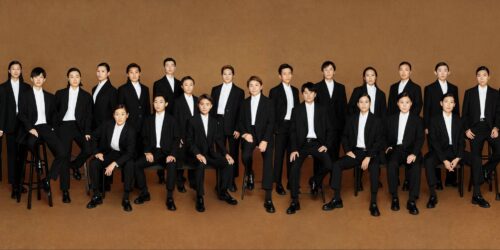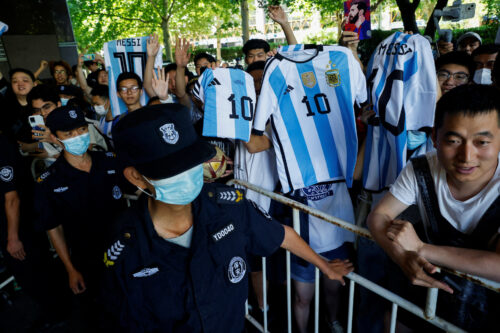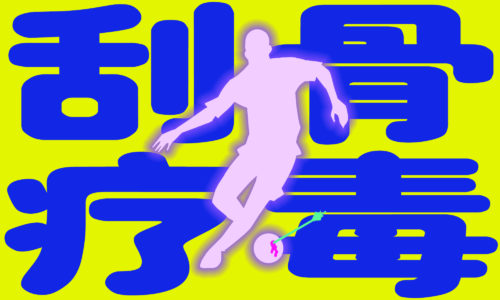Messi madness grips Beijing
Central Beijing ground to a halt yesterday ahead of Argentina’s friendly against Australia. There was only one man everyone wanted to see.
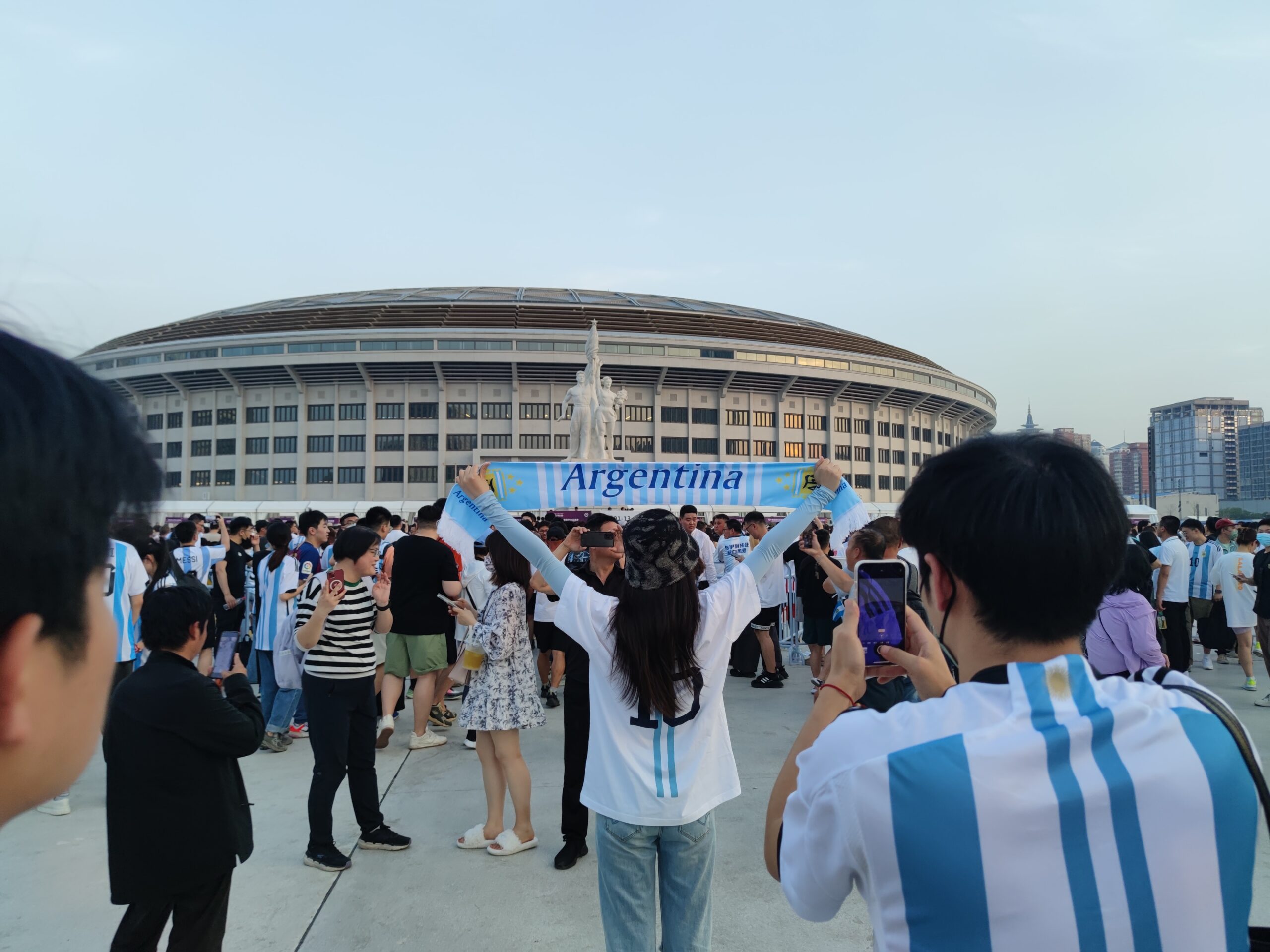
Ten years ago, June 14, 2013, was arguably the darkest day in Chinese soccer history — which is saying something, considering the serious competition for that label. The Chinese national team, playing on home turf in Hefei, lost 5-1 to a youthful Thailand side, resulting in such anger that dozens were injured in the riots that followed.
It also happened to be President Xí Jìnpíng’s 习近平 60th birthday.
Fast-forward to the present day, where, as the rumors have it, Lionel Messi was in Beijing specifically to celebrate Xi’s 70th. We can’t know for sure if that’s true, but what’s certain is that Xi, China’s most famous soccer fan, would have enjoyed Thursday’s Argentina-Australia game a whole lot more than China-Thailand.
Sensibly, Chinese sports authorities decided against a China-Argentina matchup for two main reasons: The reigning World Cup champions are a match for any team on the planet, but a typical scoreline between China and Argentina might look more like a cricket score than a soccer one. Second, imagine a scenario where virtually the entire stadium is cheering for Messi and Argentina, and by extension against China. That wouldn’t have been a good look for the host country. As if to prove that last point, fans were quick to boo local football officials when they were welcomed over the loudspeaker.
It felt like the entire city had turned out for one man. Street vendors were selling replica Messi No. 10 shirts for 100 yuan ($14), and business was booming. For another 20 or 30 yuan, one could have two blue stripes and one white one painted on the cheek. Similarly branded sunglasses and face masks were also available. The only items I saw go unsold were the scarves — unsurprising on a day when the mercury reached 39 degrees Celsius (102 degrees Fahrenheit!) and was only slightly cooler at the 8 p.m. kickoff.
It felt like the vast majority of those inside the newly rebuilt Workers’ Stadium (referred to by locals as Gongti) were wearing Messi jerseys, including one security guard, whose blue and white jersey could be seen peeking out from underneath his short-sleeved official uniform. Then there were thousands more, milling around outside, just to soak up the atmosphere and — perhaps — catch a glimpse of the great man, or hear his name chanted from within.
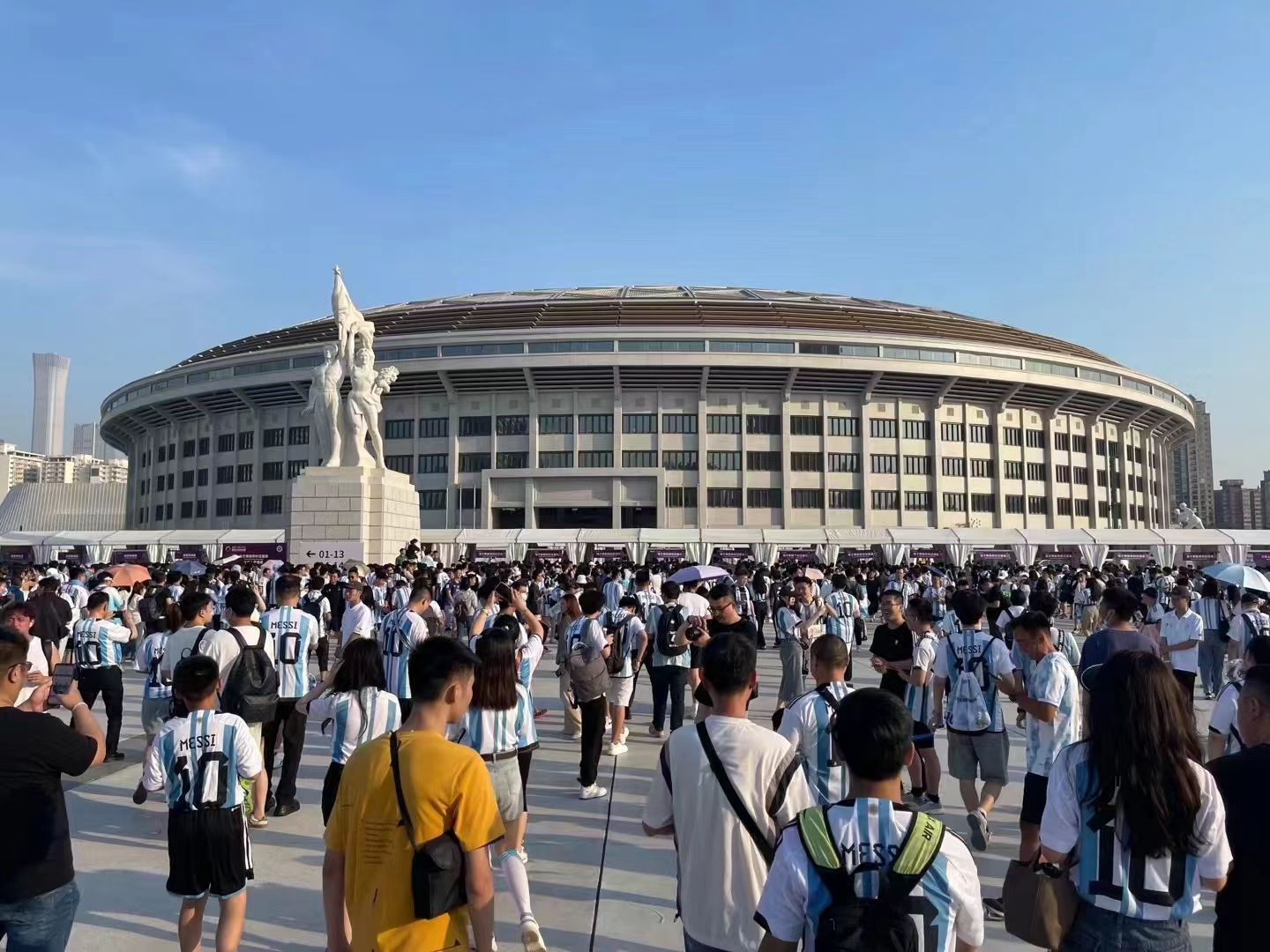
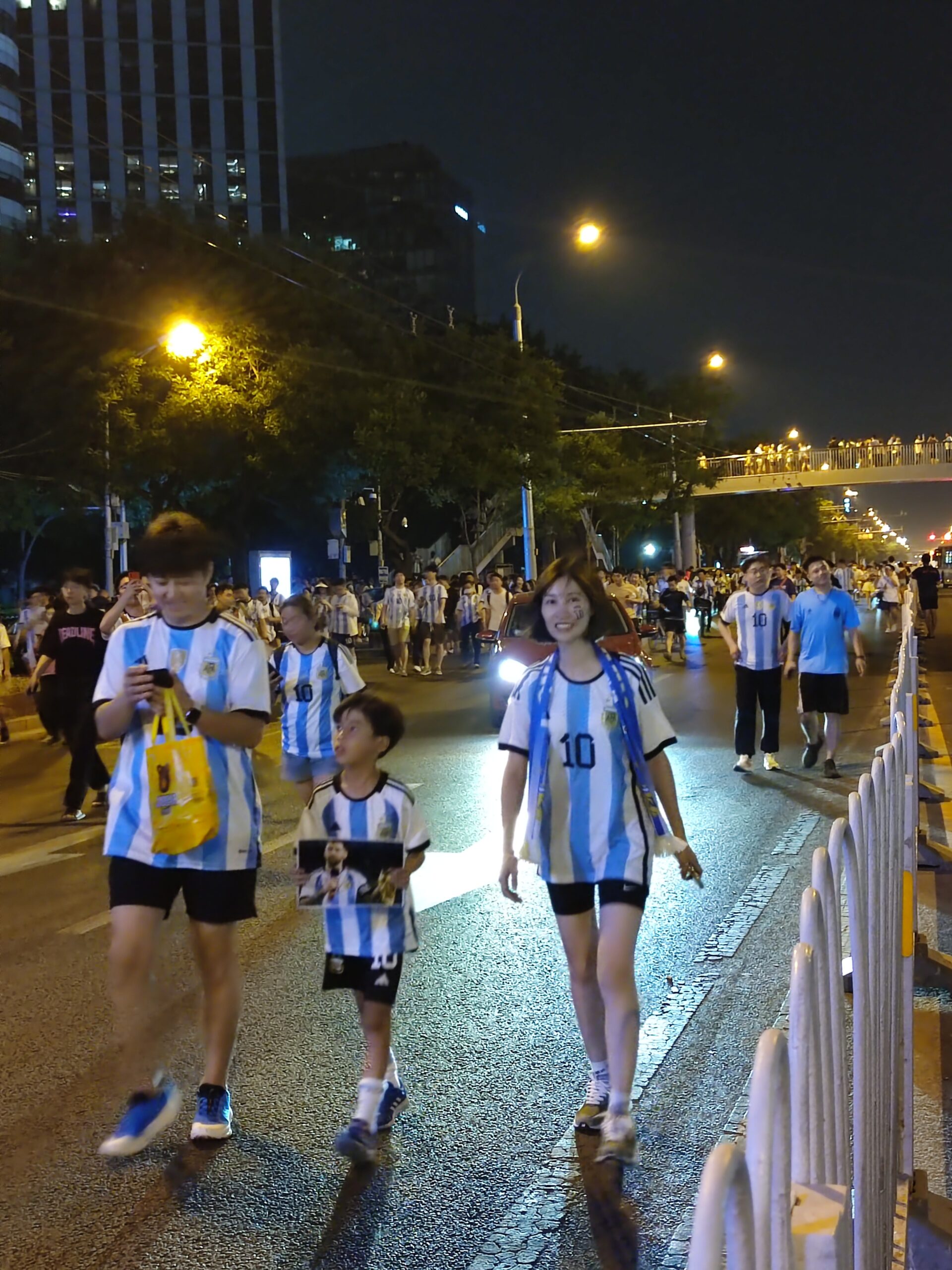
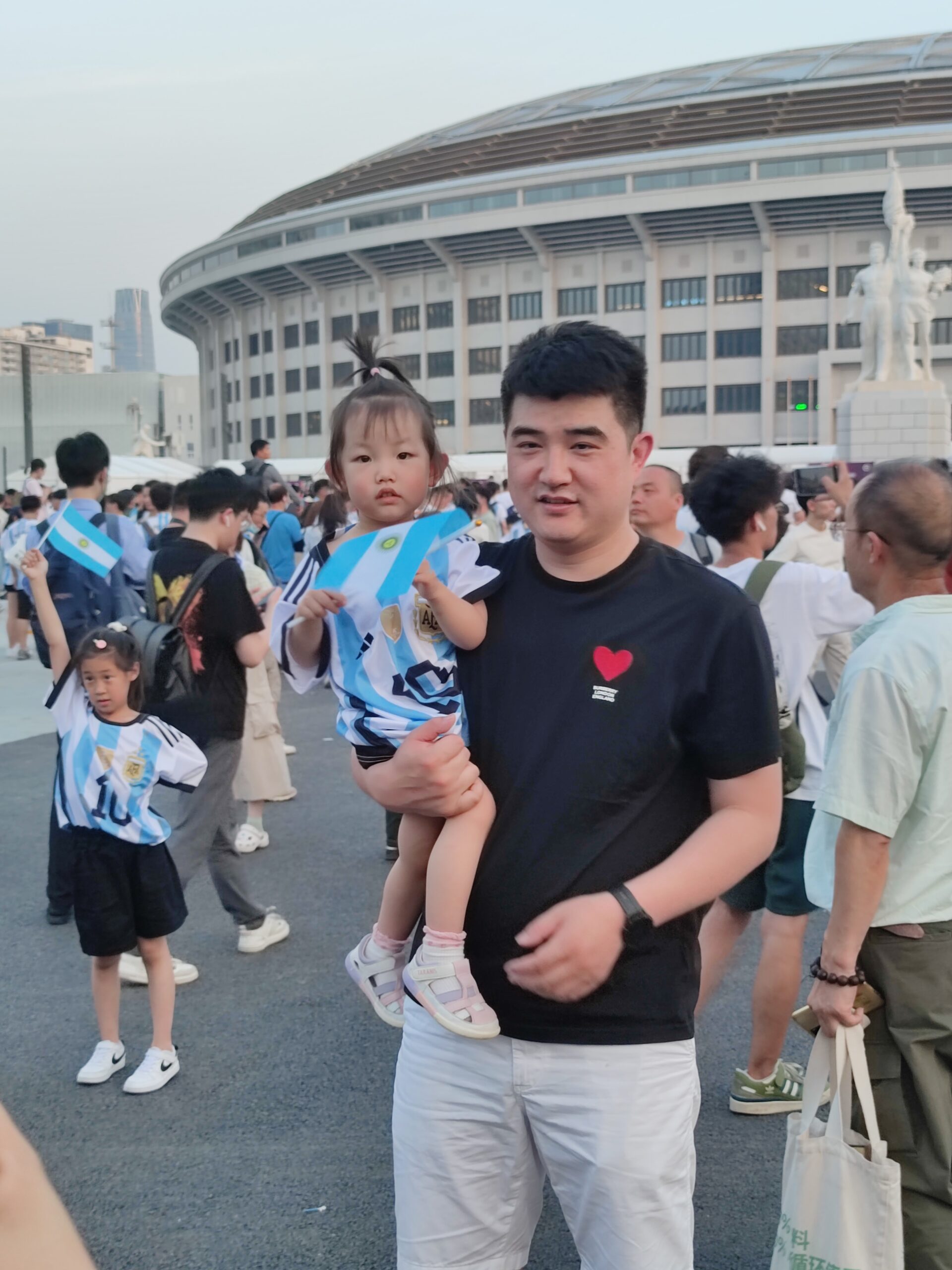
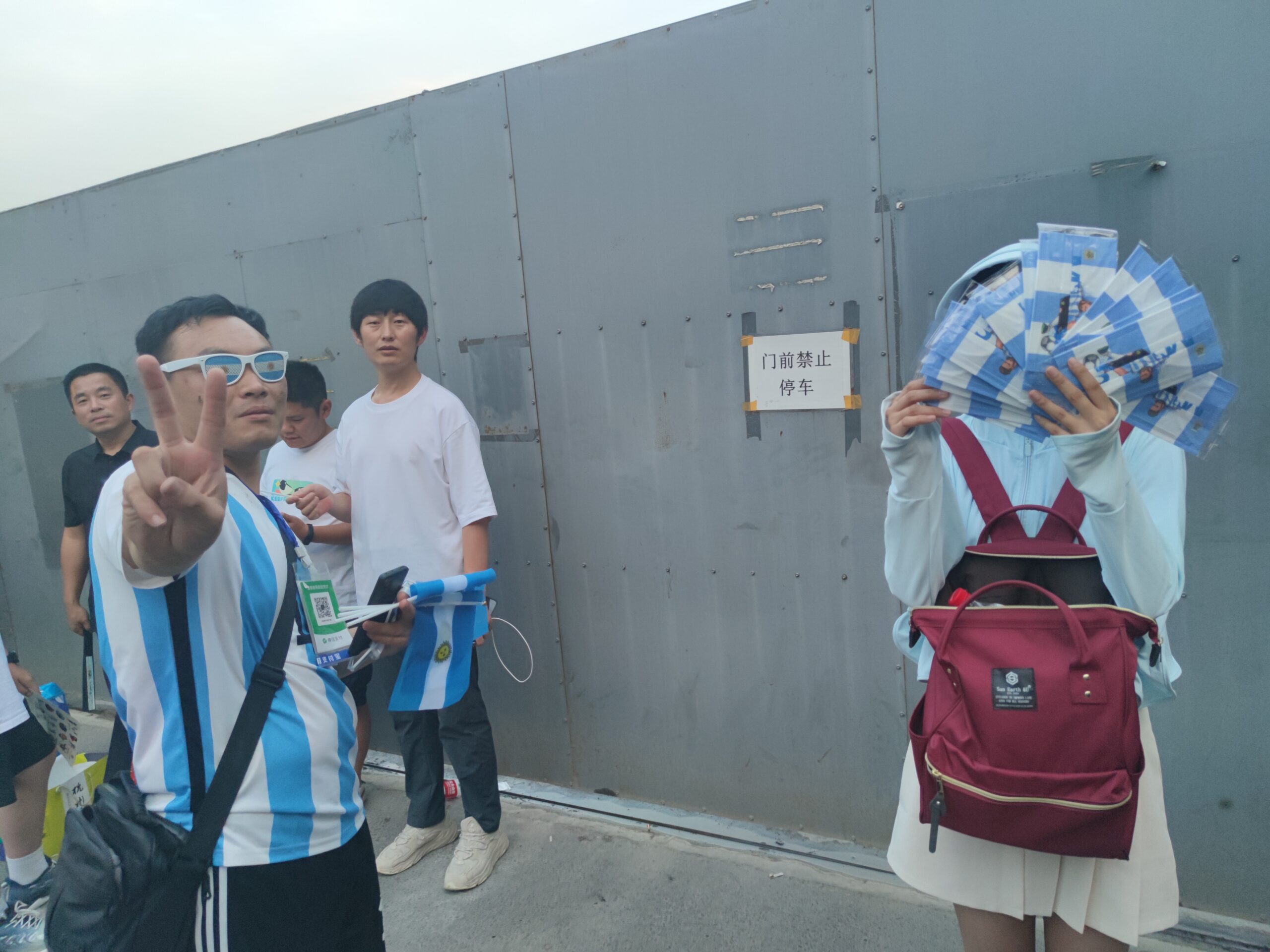
Unlike many soccer games at Gongti in recent years, the scalpers were not visibly present. Tickets went on sale online in two batches a couple of weeks previously and were sold out in 20 minutes. But official ID information had to be registered at the time of purchase, which had to match up on entry to the stadium — meaning if you bought someone’s else ticket, you’d be denied entry. A tiny number of tickets had a face value of 580 yuan ($80), but most seats were priced far higher, and anything outside the upper tier was sold for 3,800 yuan ($540) or more.
As I cycled through the crowd of Messi messiahs on my approach to the stadium, one shirt caught my eye. Zhou Zheng, a student, was wearing an Argentina shirt, but it had a different name and number, the No. 11 of Angel Di Maria, who’s played more than 130 times for his country — most of them alongside Messi — plus several more games with Messi when they were both at Paris Saint-Germain last year.
I had to ask him why he wasn’t wearing No. 10. “Di Maria plays left wing — like me,” he told me. “He’s my favorite player.”
Zhou said he paid 7,000 yuan ($1,000) for a ticket to sit behind the goal, obtained via a contact who works for the Chinese Super League team Beijing Guoan, at whose home stadium the game was being played. His ticket, from one of the VIP and sponsor sections, had never been offered online and so didn’t have affiliated ID information.
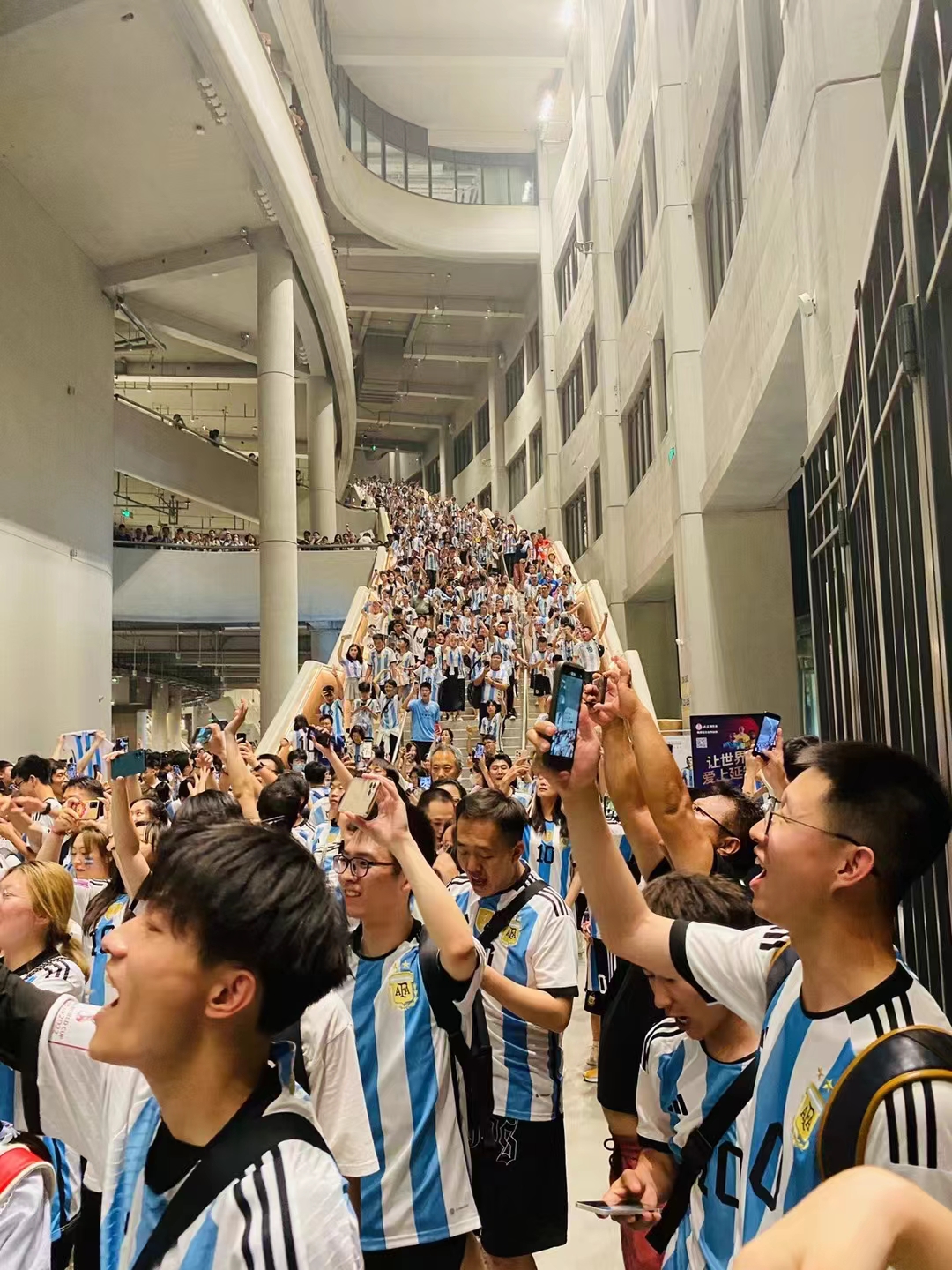
Two moments stood out from the game, both at the time and on social media afterward. A goal from No. 10 — who else? — after just 79 seconds was classic Messi, jinking past a static defender and bending a shot just inside the post. Even a WWE show couldn’t have written a better script. The crowd, as expected, went wild.
Lionel Messi scored the fastest goal of his career against Australia today ⚡️🔥
— SPORTbible (@sportbible) June 15, 2023
Argentina’s second goal — little more than an exclamation point on an eventual 2-0 victory — quickly faded from everyone’s memory, replaced by another second-half incident that happened just moments before.
Midway through the half, a teenager dropped from the upper part of the lower stands in one corner of the stadium, burst past a row of oblivious security guards, and ran right up to Messi, whom he proceeded to hug. As security struggled to keep up with him, the boy, who later said he was trying to “teach the security guards a lesson,” took off on a lap of the pitch. Argentinian goalkeeper Emi Martinez, well known for his own on-field antics, sportingly held out his hand for a high five. All the while, the crowd roared its approval with chants of “awesome” (牛逼 niúbī).
As entertaining as it was, it made a mockery of the fact that the first few rows of seats closest to the pitch had been blocked off in the name of “security,” as well as the fact that security personnel were looking toward the players on the pitch, rather than at the fans in the stands. The pitch invader was later seen back in the stands, but after being a trending topic on social media for close to 24 hours, he was detained the next day.
Meanwhile, organizers had somehow found a loophole to the usual restrictions of the Chinese Super League, at which huge swathes of seats are blocked off for no logical reason. The “official” attendance on the night was 51,385. The capacity at Workers’ Stadium is 68,000, and only a handful of seats were off-limits. You do the math.
Security — or the lack of it — was something of a feature of Messi week, right from the start of his trip last Sunday. A snafu at the airport, reportedly caused by the fact that Messi had brought his Spanish passport instead of his Argentinian one, delayed the team at customs, allowing expectant crowds at the Four Seasons hotel to build and build as word of their location spread.
I estimated around 1,500 fans were gathered there by lunchtime and witnessed repeated crowd surges in and around the hotel entrance whenever somebody suggested that the team bus might be approaching. A friend’s 12-year-old son was trampled underfoot in one such incident, receiving a foot on the head. He brushed it off as no big deal, but memories of a stampede in Shanghai that sent several people to a hospital when David Beckham visited a decade ago meant that organizers really should have known — and prepared — better.
Crowds camped out at the team’s hotel each day in the hope of seeing their idol, but the result was that at least one training session was canceled, while scheduled in-person appearances were switched to online to avoid any incidents. In one such online event, Messi’s “interview” lasted a grand total of 50 seconds.
This was not the first time Messi had played at Workers’ Stadium — your correspondent watched an Argentinian side that also included Aguero and Riquelme dispatch Ronaldinho’s Brazil 3-0 in the 2008 Olympic semifinal en route to a gold medal — but it was almost certainly his last.
His stellar résumé has since collected Copa America and World Cup titles, and those, coupled with a mainstream awareness in China of his talents encompassing those far beyond the football ecosystem, had driven the unprecedented hype around this visit.
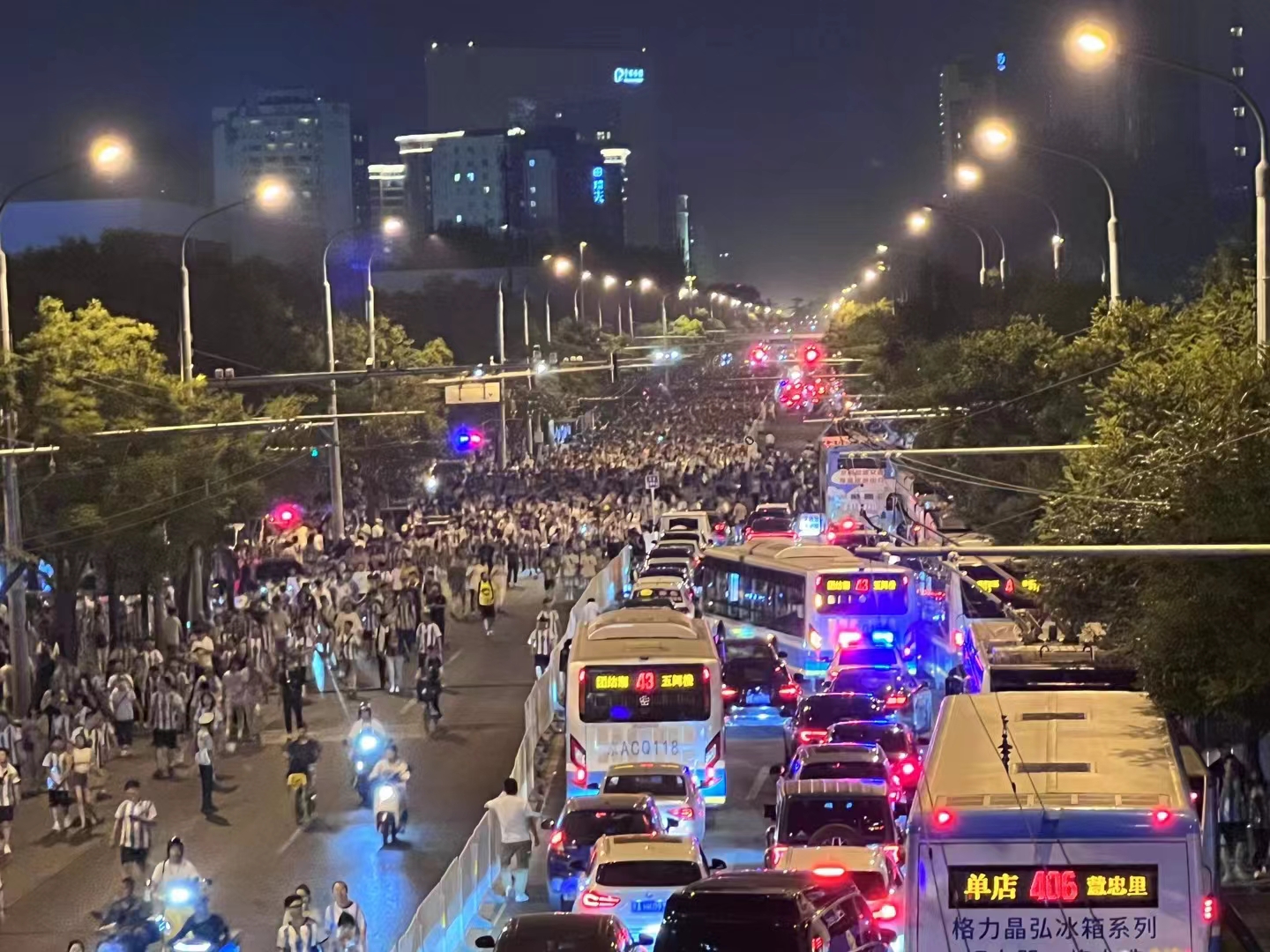
This week should have marked the start of the 2023 Asian Cup in China: 24 teams, playing across 10 cities, with thousands of fans visiting for a footballing fiesta. The event was postponed during the days of the country’s COVID-zero policy, which — though it now feels like it is far in the rear-view mirror — was lifted only six months ago.
On Thursday, it felt like all the pent-up demand for an international sporting spectacle exploded all at once.
Looking further ahead, the rescheduled Asian Games will come to Hangzhou in September, shortly before the men’s and women’s pro tennis tours return for their “China swing.” F1 will be back next spring, and I would expect European club soccer teams to return next summer, followed — possibly — by NBA teams in the fall.
But in Beijing — for one night at least — it finally felt like China was fully back.

